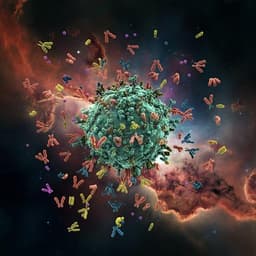
Veterinary Science
A chimeric vaccine protects farmed saltwater crocodiles from West Nile virus-induced skin lesions
G. Habarugira, J. J. Harrison, et al.
Discover how a chimeric virus vaccine combining Binjari and West Nile virus genes has shown promise in preventing skin lesions in farmed crocodiles, with promising results from research conducted by Gervais Habarugira and collaborators.
Playback language: English
Related Publications
Explore these studies to deepen your understanding of the subject.







